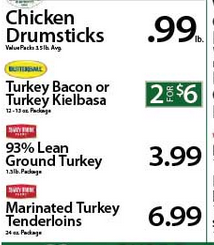I personally don’t eat bacon. I overeat it when I do. Bacon is one of those things (like nuts) where I can eat an entire meal and STILL eat a ton of it. So, I stopped eating it a while ago.
I will eat it sometimes, mainly if it’s added to a recipe.
Eggs are a different story. I don’t eat many of them, but I like them when I do. If I eat eggs, I don’t want more, unlike bacon.
I think what’s happening is that Australian pig farmers can get a higher price in Singapore/other parts of Asia, so they sell them there. Meanwhile, we (the US) “overproduce” pigs and can sell cheaper pig meat to others.
Meanwhile, I’d love to buy all my pork from Fire in a Bottle, as the pork there tastes way better than normal pork. Most pork fat is “icky” to me, but the pork fat from his pigs is not. But the size of the boxes, lack of choice for some parts (can’t get pork shoulder for instance), and cost limit the amount I buy.



